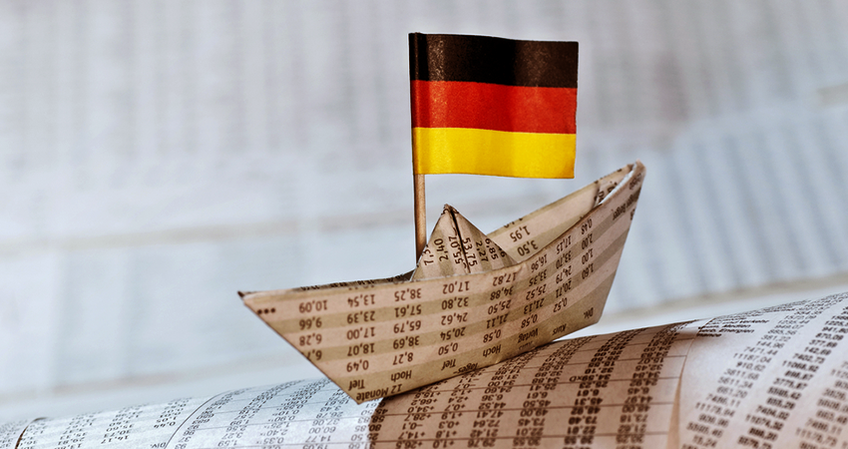This week, Europe at a glance
European Stocks Slide as Key Russian Gas Pipeline to Remain Closed
European indexes fell sharply and the euro touched a new 20-year low after Russia extended a halt to natural-gas flows through a major pipeline, sending energy prices soaring.
In early trading Monday, the pan-continental Stoxx Europe 600 index fell 1.8%, while Germany’s DAX index lost 3.2%. The U.K.’s FTSE 100 was down 1.2%.
The euro edged slightly lower to $0.9927 after setting a new 20-year low earlier in the day. The British pound was flat at $1.1491, recovering after falling to a multidecade low earlier in the session.
U.S. stock futures wavered, with markets closed for the Labor Day holiday. Contracts linked to the S&P 500 and Dow Jones Industrial Average rose 0.1%. Futures tied to the tech-heavy Nasdaq-100 fell 0.1%. U.S. stocks fell Friday after strong labor-market data bolstered expectations that the Federal Reserve will continue raising interest rates at an aggressive clip.
Russia’s move Friday to extend a halt to flows through the Nord Stream pipeline to Germany is set to exacerbate energy pressures that are already straining households and businesses across Europe.
Natural-gas futures in northwest Europe, which reflect the cost of fuel in the wholesale market, jumped more than 30% early Monday. They remain below the all-time high recorded in late August. “It’s inevitable now that Europe is going to be in a recession,” said Craig Erlam, senior market analyst at Oanda.
“It’s just a case of how much support governments are going to offer against that backdrop and how inflationary that’s going to be.”
Germany over the weekend unveiled a support package worth 65 billion euros, equivalent to $64.7 billion, that includes a price cap on electricity.
Germany Agrees on Gas Relief Package for Businesses, Consumers
Germany unveiled its third energy crisis relief package this year to shield consumers from soaring prices over the winter, a day after Russia indefinitely suspended gas deliveries to Europe’s largest economy. The new measures—worth 65 billion euros, equivalent to $64.7 billion—had been flagged before Russian gas giant Gazprom PJSC cut deliveries via its Nord Stream natural gas pipeline.
The package represents Berlin’s latest attempt to shield Germany from the fallout of Russia’s economic war on the West and rising inflation in general. “Russia is no longer a reliable supplier of energy,” German Chancellor Olaf Scholz said on Sunday as he unveiled the package. The measures include a price cap on electricity; a cut in the value-added tax on natural gas; the postponement of a rise in carbon emissions prices for one year; and one-off payments to pensioners and students aimed at offsetting part of their higher energy bills.
The package also includes tax changes to prevent income taxes from rising with inflation and government assistance for energy-intensive industries as well as a raft of other, smaller measures targeting low-income earners, commuters, families and others. To finance the measures, the government said it would implement an internationally agreed minimum corporate tax rate, which it said would raise billions in the coming years, and would seek a European-wide special tax on companies that earn exceptionally high profits from the current volatility in energy markets.
Presenting the measures, Mr. Scholz pleaded with citizens to conserve energy by curbing consumption.
British Pound Falls to Lowest Level Since 1985 as U.K. Economic Pain Mounts
Accordin to WSJ: The British pound slid to its lowest level against the U.S. dollar since 1985, a reflection of the U.K.’s dire economic situation. Investors are braced for sterling to weaken even further to a nadir not seen in more than two centuries of trading across the Atlantic.
The pound fell 0.3% in early Monday trading in Asia to $1.1475, according to FactSet. That is the lowest since 1985. Sterling’s descent is in part a side effect of the relentless U.S. dollar rally, which has driven both the euro and Japanese yen to multidecade lows in recent days. But the problems are also homegrown.
The U.K. faces an energy crunch that threatens to leave many households unable to pay their bills this winter. Uncertainty over both the economic policies the U.K.’s next prime minister will enact and the Bank of England’s ability to control sky-high inflation are compounding the pound’s weakness.
“The economic challenges facing the U.K. economy are probably of a magnitude as great as anything we’ve seen in living memory,” said Mark Dowding, chief investment officer of BlueBay Asset Management.
Goldman Sachs warned U.K. inflation could top 22% next year amid spiraling energy costs, one of the starkest projections so far. The bank estimates the U.K. economy would contract 3.4% in that scenario.

